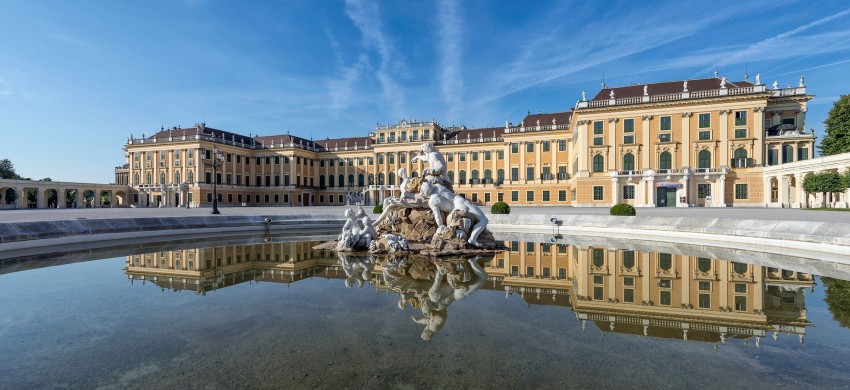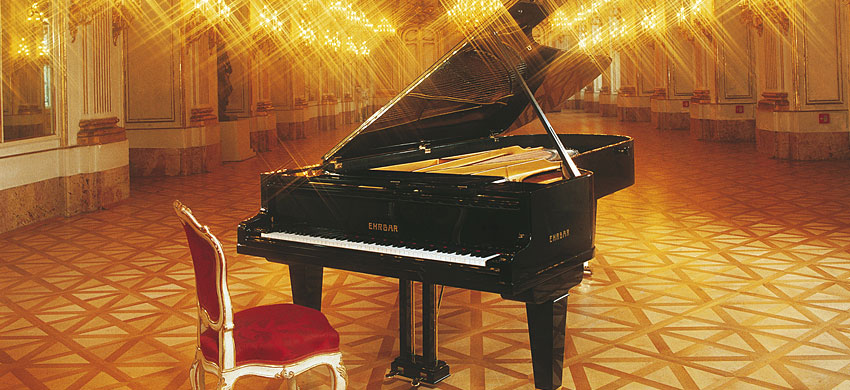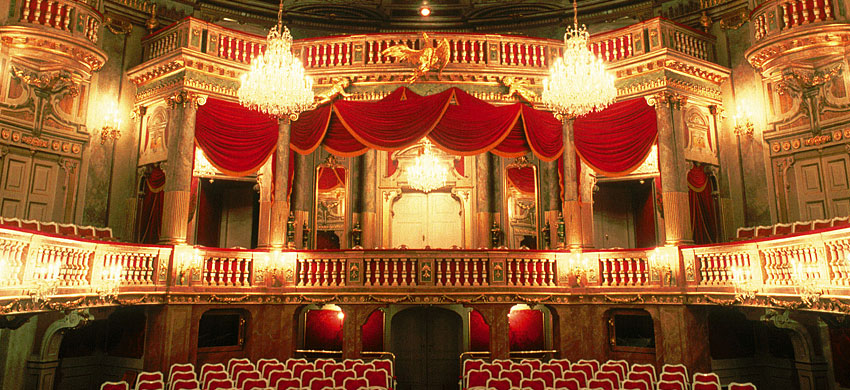
Relive the fairytale atmosphere of the Sissi films by visiting Schönbrunn Palace, the summer residence of the Habsburgs: it is one of the most beautiful Baroque buildings in Europe and one of the most romantic.
In addition to Emperor Franz Joseph and his bride, Empress Elisabeth better known as Sissi, Napoleon, Maria Theresa of Habsburg, emperors of Austria and other nobles of the Habsburg court also lived at Schloss Schönbrunn.
Its sumptuous rooms decorated with the finest taste were the scene of events that shaped the history of Austria and Europe, such as the birth of Emperor Franz Joseph, the Congress of Vienna, Napoleon’s speeches, the first public appearances of the ‘child prodigy’ Wolfang Amadeus Mozart and the end of the Austrian monarchy in 1918.
Of the 1441 rooms in the castle, “only” 40 are open to the public: enough for a unique experience of strolling in luxury, listening to the stories of emperors and princesses and imagining what it might have been like to live as a nobleman in the elegant and cultured Vienna of the 18th and 19th centuries. You too can be an emperor for a day.
Schoenbrunn Palace is open all year round, even on public holidays. The opening hours of the palace, the park and the fountains vary depending on the season. Last admission is 45 minutes before closing time.
There is no best time to visit the château: in spring the park is in full bloom, in summer you can take advantage of the sun and light for wonderful walks and photographs, the colours in autumn are particularly romantic and in winter the view of the snow-covered palace is something absolutely unforgettable.

The palace that would later become Schönbrunn Palace was owned by the Habsburgs from 1569, when Maximilian II acquired an estate and residence in what is now the suburban area of Hietzing, at that time only countryside.
It was Ferdinand II’s wife, Eleonora Gonzaga, who had an aristocratic residence built in 1642; she is said to be responsible for the name Schönbrunn. Another woman, Maria Theresa, was responsible for the extension and transformation of Schönbrunn into the Habsburg summer residence. This was the heyday of the castle, which became the centre of political and court life.
After Maria Theresa’s death, the castle remained uninhabited for a few years, but returned to a period of splendour during the reign of Franz Joseph.
With the fall of the monarchy, the castle passed into the ownership of the newly created Republic of Austria; today it is owned by a state-controlled private company.
In 1996 Schönbrunn Castle was declared a UNESCO World Heritage Site.

A visit to Schoenbrunn Palace is a fascinating journey through Austrian history and the lives of kings, emperors and princesses.
The rooms at Schönbrunn that are open to the public include the private rooms of Franz Joseph and Sisi in the west wing of the palace, the state rooms in the central section, the imperial flats of Maria Theresa and Franz Stephan I and the flat in which Archduchess Sophie and Archduke Franz Karl, Franz Joseph’s parents, lived. The tour starts at the Blue Staircase in the west wing.
Of the 40 rooms that can be visited, the most luxurious, curious or historically interesting are:
You can choose between two different tours for your visit to Schloss Schönbrunn.
The Imperial Tour is the shorter tour, allowing you to visit 22 rooms in the west wing and the central section of the palace, and takes about 35 minutes. Included in the tour are the flats of Emperor Franz Joseph and Sisi, the ballrooms and state rooms. This tour is perfect for those with little time or for those who think they can’t handle too much stucco or crystal!
To fully experience the magic of the castle, choose the Grand Tour, which comprises 40 rooms and lasts about 60 minutes. In addition to the rooms that can be visited on the Imperial Tour, this tour includes the 18th-century rooms from the time of Maria Theresa.
Guided tours are available for the Grand Tour in German and English, and for both tours you can request an audio guide available in 16 languages.
The Sisi ticket, on the other hand, is a combined ticket that allows you to visit the three most famous sights related to the life of Austria’s most famous empress at a discounted price (it also includes the Hofburg and the Imperial Furniture Collection with its permanent exhibition ‘Sissi, Myth of Cinema – Imperial Furniture for a Cinematic Masterpiece’).
Discounted tickets for children and convenient family passes are also available.
Schönbrunn Palace is one of the most visited destinations in Austria. In order to avoid queues or even worse a sell-out, it is advisable to buy your ticket online before departure. This way, you can be sure of a stress-free visit to one of Europe’s most beautiful palaces!
Classical music concerts are regularly held at the Schoenbrunn Palace Orangery. It is certainly an original way to visit this beautiful castle!
Open year-round with free admission, the Schoenbrunn Gardens are an ideal continuation of the splendour of the palace in the open air, adorned with an impressive number of fountains, statues, monuments, trees and flowers and the opulent Gloriette, a stately building that houses a fine café.
Beloved by the Viennese, who have been able to take advantage of its elegant avenues for relaxing strolls through the greenery since 1779, the park is of exceptional historical and artistic value, so plan some time to spend outside before or after your visit to the palace.
Also part of the Schoenbrunn Gardens complex are the Imperial Carriage Museum, the Crown Prince’s Garden, the Orangery Garden, the Maze, the Palm House and the Desert House, which can only be visited by purchasing a separate ticket.
A famous attraction within the park is the Schönbrunn Zoo, considered the oldest zoo in the world and one of the best in Europe.
It couldn’t be easier to get to Schoenbrunn Palace from the centre of Vienna: underground line U4, tram 10 and bus 10A stop right in front of the palace. You can’t miss a stop because you have to get off at… Schönbrunn!
If you are travelling by car, take the Altmannsdorf exit off the A23 (south-eastern bypass); if you are coming from the A1 motorway, follow the road through the city centre to Schönbrunner Schlossstrasse 47.
City Card allow you to save on public transport and / or on the entrances to the main tourist attractions.
